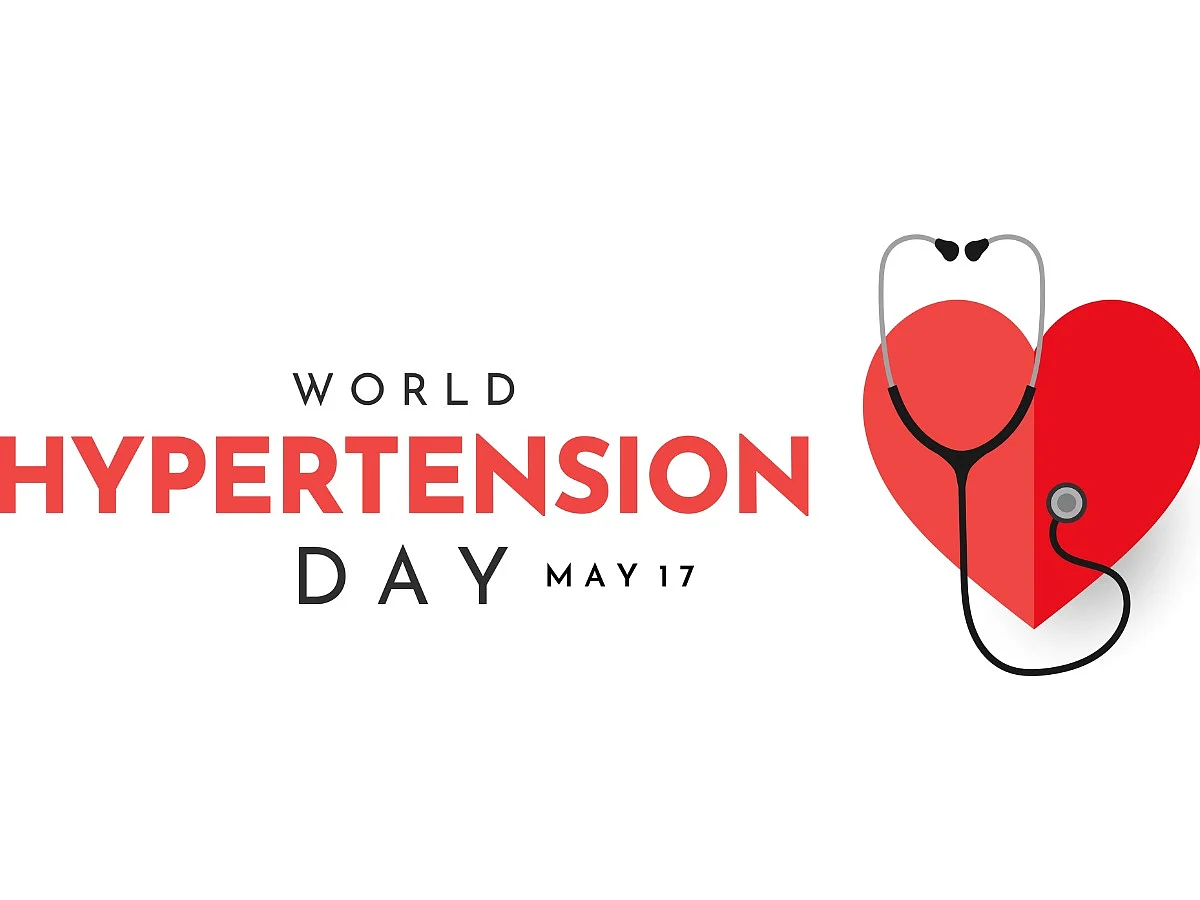World Hypertension Day 2024: 7 Tips To Manage Hypertension
World Hypertension Day on 17 May is a great opportunity to learn about the ways that can help manage the condition

advertisement
Tips To Manage Hypertension: World Hypertension day is celebrated on 17 May annually and today is the day to raise awareness and educate people about hypertension, its causes, prevention, and management. High blood pressure (bp) is a condition in which the blood pressure rises above a certain limit. It can be a significant health problem, leading to an increased risk of heart disease, stroke, and kidney disease.
Although high blood pressure can affect anyone, it's more commonly diagnosed in men. It's also a more common condition in people who are overweight or obese. However, anyone can have high blood pressure.
Symptoms of high blood pressure include high blood pressure readings resulting in increased risk of heart disease, stroke, and kidney disease.
causes of high blood pressure include obesity, high weight, and a family history of hypertension. It also can be caused by certain lifestyle changes, such as diet, exercise, and medication.
Treatment for high blood pressure includes medication, lifestyle changes, and exercise. Also, it's important to control high blood pressure by avoiding certain lifestyle triggers, such as stress. Let's know how to manage hypertension without relying on medicines always.
How To Manage Hypertension?
1. Exercise Regularly- Regular exercise helps to strengthen the heart and lungs, which enables the heart to pump less blood with less effort. This can help to lower blood pressure. The Centers for Disease Control and Prevention (CDC) recommends that adults exercise for at least 2.5 hours per week, or about 30 minutes a day five days a week. Children and teens are recommended to exercise for one hour a day.
There are many ways to incorporate more exercise into your daily life. Use the stairs, walk instead of driving, or do household chores. Gardening, going for a bike ride, or playing a team sport can also help to reduce your blood pressure.
2. Follow a Healthy Diet- According to Healthline, the DASH (Dietary Approaches to Stop Hypertension) has shown that increasing potassium intake and cutting back on salt can help lower blood pressure. Potassium is a critical mineral that helps the body eliminate salt and reduce blood pressure. It is found in many foods, including dried fruits, milk and yogurt, lentils and kidney beans, vegetables such as potatoes, tomatoes, and spinach.
In general, a healthy diet that includes plenty of fruits, vegetables, whole grains, low-fat dairy products, and fish, poultry, beans, nuts, and vegetable oils can help lower blood pressure. It's also important to limit foods that are high in saturated fats and added sugars.
3. Limit Processed Foods- Processed foods are often high in salt, sugar, and fat. This can lead to high blood pressure. Some of the most common foods that can raise blood pressure include processed meats, fast or fried foods, and processed snacks. These foods are often high in salt and sugar, which can lead to high blood pressure. In addition, some foods labeled "low fat" may actually be high in salt and sugar, to compensate for the loss of fat. This can also raise blood pressure. Eating less processed food can also help to lower your risk of heart disease and stroke.
4. Avoid Smoking & Drinking- Another way to lower blood pressure is to quit or avoid smoking. Smoking can affect your blood pressure by damaging your blood vessel walls, causing inflammation, and narrowing your arteries. Quitting smoking can help to lower your blood pressure, especially if you are also exposed to secondhand smoke.
5. Try Managing Stress- Managing stress can also help to lower your blood pressure. Stress can lead to inflammation, which can raise blood pressure. Finding healthy ways to manage stress, such as practicing deep breathing, taking a walk, reading a book, listening to music, or spending time with friends and family, can help to lower your stress levels.
6. Consume Dark Chocolate- It's also important to eat some dark chocolate. Dark chocolate contains flavonoids, which are an antioxidant that may help to lower blood pressure. However, it's important to note that eating dark chocolate is unlikely to have any significant health benefits if you are not eating it regularly. It's also important to note that dark chocolate that is high in sugar, fat, or calories may not be beneficial.
7. Get Quality Sleep- Numerous studies have shown that getting less than 6 hours of sleep every night for several weeks can lead to hypertension. It's important to create a healthy sleep schedule and stick to it to improve sleep quality and avoid the potential health effects of sleep deprivation.
One needs to establish a consistent sleep-wake schedule. Go to bed and wake up at the same time every day, and try to keep the same schedule on weekdays and on weekends. It's also important to create a restful space before bed. This might include taking a warm bath or doing relaxation exercises. Avoid bright light, such as from a TV or computer screen.
(Disclaimer: Parts of this article were generated by AI and published after the content was editorially modified and verified by a human based on their own judgement and expertise. The Quint does not publish AI-generated content without direct human involvement and oversight)